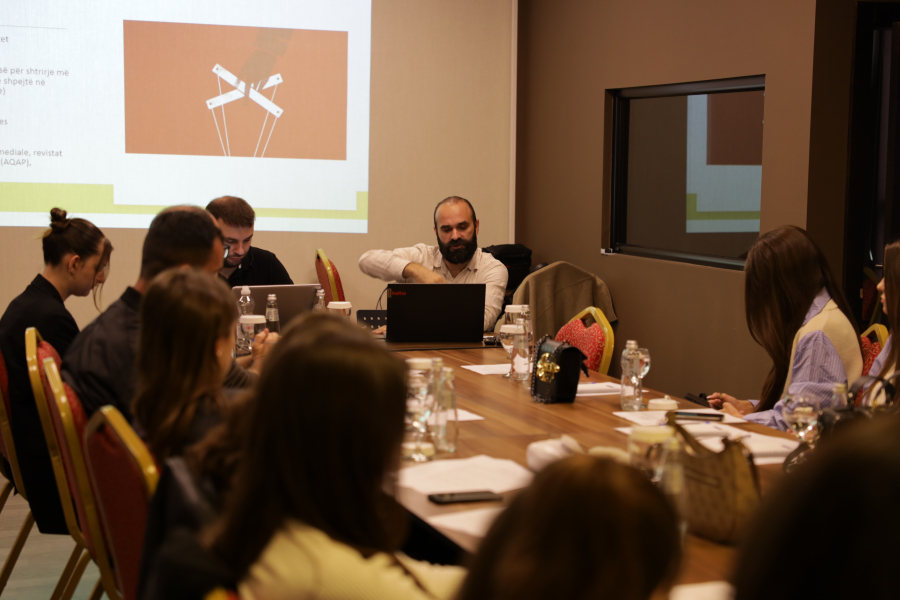27/09/2024

On September 25, about 20 students of the Faculty of Law, Economics and Education in Gjilan participated in a training session on combating Russian, Chinese and religious disinformation in Kosovo.
Organised by the Kosovar Center for Security Studies (KCSS) and Balkan Investigative Reporting Network (BIRN Kosovo), the training focused on equipping participants with the knowledge and skills necessary to identify and counter misleading narratives that threaten local communities.
The first session, led by Labinot Leposhtica from BIRN Kosovo, addressed the influence of Russian and Chinese disinformation on Kosovo’s media and justice systems.
Leposhtica discussed how disinformation campaigns, often orchestrated by foreign powers, aim to destabilize the region by undermining trust in institutions and spreading false narratives.
He provided examples of how these actors manipulate information, particularly regarding the justice system, and introduced mechanisms for regulation and self-regulation that can help counter these efforts.
Students learned to differentiate between disinformation, misinformation and narratives, and were given practical tools to spot and debunk false narratives spread by state-controlled foreign media.
The second session, led by Skënder Perteshi from KCSS, shifted the focus to religious disinformation. Perteshi discussed how radical religious groups in Kosovo and abroad use disinformation as a strategic tool to promote extremist ideologies.
Participants were introduced to the various narratives used by these groups to mislead vulnerable audiences as well as the strategic goals these groups aim to achieve through disinformation.
Perteshi emphasized the importance of understanding the target audiences of religious disinformation and provided strategies for building positive alternative narratives to counteract extremist messaging.
The session also covered how secularism, democracy and the rule of law are often attacked by such disinformation campaigns, and how individuals can protect themselves and their communities from being misled.
By the end of the training, students gained a stronger understanding of the dynamics of disinformation and were better prepared to act as critical consumers of information.
Leposhtica and Perteshi emphasized that tackling disinformation requires active participation from the community, especially from young people who play a key role in shaping Kosovo’s future.
The training was held by KCSS and BIRN Kosovo within the project “Increasing public awareness on Russian, Chinese influence and religious disinformation and equipping media students and journalists with the necessary tools to identify, analyze, and combat disinformation”, supported through the Digital Activism Program by TechSoup Global.